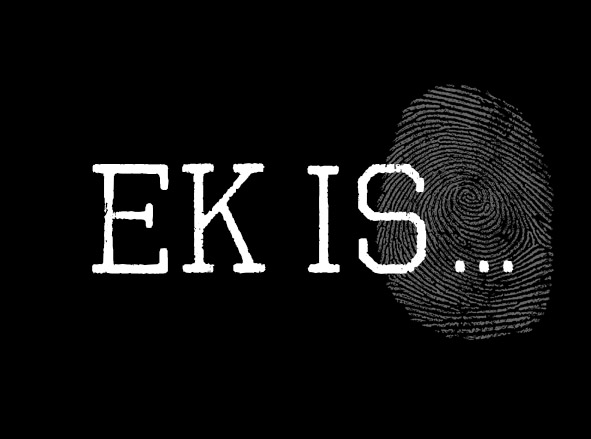A Christ-Centred value-based Morpho-genesis Collaborate Approach.
From the perspective of the wonderful outcomes of the speed of trust, we as civil society has come to a complete halt. [1] There seems to be little trust anywhere. The result of a determining legacy of more than five hundred years of self-determination at the cost of others, monopolies, division, and racism. The dark side of capitalism: Self-interest.[2] The invisible ethical counterbalance of mutuality heals this vested-economic-selfish interest and makes is sustainable on the long term. According to Paretto’s efficiency theory, if we do not balance self-interest with mutuality, we inevitably become an unstable unequal society and collapse on ourselves. [3]
An additional result of self-interest and consequent mistrust in civil society and its formal agencies is that we work in silos, sometimes even against each other, with little impact, and hopelessly ineffective.[4] There is no common deep-rooted singular purpose than connects all these silos. This low-outcome, inefficiency is perhaps the biggest contributor to broken trust in a nation. Society seems to have lost complete trust and respect for just about every formal institution. Banks, churches, government departments are no longer the trusted agencies of a healthy society observing the low attendance rate at civil meetings, the hype of cryptocurrencies, and huge number of NGO’s in the Country.[5]
In one of my discussions with a trusted National Elder Mkangeli Matomela, we spoke at length about the phenomenon we have discovered at all the land summits, held in 2018-2019. [6] Individual farmers with a personal conviction that they had an encounter with Jesus, and His way of ordering the world, is having a meaningful change of heart. At huge personal expense land, resources and market access were shared with the poor through a collaborative intentional knowledge transfer process. The only place you will find healthy mature TRUST is in the true Church, true followers of Christ type of churches, ministries and movements. A type of church that is: spirit filled, Evangelical Christ centred, contemplative inner wellness centred, socially relevant where every believer function in their God-Given ministry. During our Country-wide Bridge Building Land Summits I began to meet such churches and ministries. During COVID 19, churches are at the forefront of food distribution and poverty alleviation relabelling the importance of Faith Based Initiatives to bring diverse societies together and REBUILT TRUST. The focus is not doctrinal differences but doing the work of Christ.
Mkangeli Matomela is one such leader, one of the pioneers of the New Nation Movement. I asked Matomela, “what do you think white people need to do to gain the trust of the black man?’ The enthusiastic wise Matomela answer without hesitation, “you need to just say you are sorry, and learn to share.” Sure, I responded, I get that. African cultures are known for sharing. I put this to him, ask me the same question. What question? Matomela reflected. “What should black people do so they can earn the trust of the white man?” “Oh yes.” “Well ask me.” I persisted. He laughed and then ask me politely: “What should black people do so they can earn the trust of the white man?” Be competent, successful and build something” I reflected. “Oh yes, that is right” Matomela replied: “white people are known for their hard work, and spirit of excellence”
This is the conundrum is it not? Successful people find it difficult to share, and if they share it is with conditions. Poor people yearn for inclusion and opportunity but lack the resources to gain the necessary skills to show-case or proof their success. Of course, our conversation is a gross generalisation, for there are many black people who are tremendously competent, and there are many white people who are not, and there are white people who are extravagant in their sharing and there are black people who do not share.
Trust can fundamentally not be achieved or sustained without upholding and keeping a value base throughout all operations. I propose the following basic values, as agreed upon through the various Bridge-Building summits:
Inclusivity
Intrinsic dignity worth
Personal responsibility
Equity
Impartiality
Non-violence
Non-partisan
Non-racist
Non-reactionary
Freedom of choice
Sanctity of life
Stewardship
Matomela the champion of a value-based society agrees, by sharing the “ilima’ concept with me. Tilling the land, ukulima, Farmers are called “abalimi”. Tilling the land was a collective, collaborative and cooperative effort of the whole community. Communal cultivation, working-bee for cultivating (when neighbours help to cultivate a large field Field ploughed by communal cultivation).[7] In African consciousness one can only be an effective tribe in a locality if everyone pulls their weight, taking mutual responsibility of the whole.
Unfortunately, things are looking gloomy for the ruling party who are not known for collaborating with all parties and stakeholders at lower structural levels. What have the ANC built in 25 years of reign? What values are they known for? The Grote Schuur hospital at one point known as one of the best hospitals in the world is a shadow of its former glory. The same applies to SAA, Eskom, Transnet, and many others. Do not feel sorry for the ANC, and please do not become defensive if you’re loyal to the party. If you are chosen to rule, take responsibility. The ANC have the power, what did they accomplished with it? BBBEE did not help, as it alienated one part of our citizenry to save another section. The ANC have the best policies and plans, they fail to execute it. Most importantly! Do not label these dismal failures to a race deficiency. I suggest we all failed, because we failed to collaborate, unite our diversity and ALL together build a new Country.
May president Rhamophosa, who currently did so well leading us through this turbulent global pandemic, seize the moment and facilitate more think-tanks, public-private-people-partnerships, public engagements and forums. But for success he will have to earn our trust, and that begins with owning up to the mistakes, and then making the tough decisions on behalf of the whole nation not just one part of the populous. Margareet Visser substantiate this point in her thesis “Farm Workers’ Living and Working Conditions in South Africa: key trends, emergent issues, and underlying and structural problems”.
The fortunes of producers and workers are linked. It is therefore necessary that they try to find linked solutions to their problems, but also temporarily suspend their adversarial positions towards each other to address inequality in the value chain.
When government tries to help the farmworkers at the detriment of the producers, they invariably weaken the livelihood of the farmworkers. Government should rather seek to help these parties collaborate and come up with the solutions themselves.
Maybe too many people are in the wrong positions of leadership all-together. What if we elect individuals to government after scrutinising first what they have built and accomplished in life for the common good for ALL instead of cadre deployment and nepotism.
The sobering reality is TRUST is at its endemic lowest point.
Illicit Financial Flows (IFF) have several sources and channels which generally fall within three major categories: business-related activities (e.g. trade misinvoicing); criminal activities (e.g. drug trade, human trafficking, illegal arms dealing, smuggling of contraband and tax evasion); and corruption and money laundering. According to the Report of the High-Level Panel (HLP) on IFFs from Africa commissioned by the African Union (AU) and the United Nations Economic Commission for Africa (UNECA) Conference of Ministers of Finance, Planning and Economic Development (2015),[8] over the last 50 years, Africa has lost in excess of USD 1 trillion in IFFs. A recent report by the AU Commission[9] indicates that “estimates of these amounts hover between USD 50 and 80 billion annually and seem to be on an upward trajectory. [10]
For the majority of the people to pay their taxes voluntary, we need a competent state! We live in a consumer age, where once we’ve paid for a product when it fails it gets replaced. We are paying huge amounts of taxes but are not getting adequate service delivery. As a result, we hear of tax-revolt type of reactions throughout the Country. But beware, taxpayers cannot fight for their vested interest, without acknowledging the big portion of society that is not paying taxes.
The biggest portion of voters are loyal to the ANC, because they receive their livelihoods from the ANC. Somehow our diverse sentiments for certain political parties are still rooted in fear and animosity against certain apposing racial groups. We hence vote the same sentiment into power and expect different results. It is a good thing that society organise themselves into formal agencies and collectives. Eventually all these agencies will have to get together and negotiate a consensus development strategy of economic mutuality and inclusion.
All cultures in South Africa have their own bias and perspective of History mostly seeing each other as opponents. We struggle to find a singular national uniting narrative. What is the one thing that will make South Africa great again? What is South Africa’s singular greatest export offer? Germany is known for its precision; the Swiss for their quality and durability; Italy for its passion and Rwanda for its rise out of an atrocious genocide.
Maybe collaboration can be the way we as South Africans cultivate a new national narrative.
#RebuiltSAtogether
Our recent success at the Rugby World Cup – where Siya Kolisi contributed collaboration as their reason for success is a welcome start. Collaboration can only work if we stop pointing the finger and begin to take hands. No one political party can solve the complex problems in our nation alone. No one political party can and will ever be able to unite us as ONE Nation because it is by default divisive and based on the self-interests of their constituency. Current Party politics divide our people because it is based on lobbying for various people’s vested interests. This is not wrong, it is natural that various entities protect their vested interests, but not at the detriment of the whole!
It is only when all citizens at most local ground level finds purpose in common good, reach consensus through robust debate, and become an collaborative ILIMA community that one will ever achieve the speed of trust and eventually bring well-being to all. So many policies are made in boardrooms without sufficient public participation at the most local level. I suggest that poor participation and overall attendance of ALL stakeholders is because of lack of trust and respect.
Matthew Taylor strongly proposes a movement of citizen assemblies,[11] formed as a pragmatic, multi-dimensional, non-partisan, non-ideological collaboration of collaborations which will eventually advance a new National Narrative of trust and respect. These local Citizen Assemblies will however not be properly formed if existing trusted non-partisan leaders in the community is not leading and hosting the initiative. This is where I believe the CHURCH have such an important role to play!! The job of the church is reconciliation, healing and restoration. The job of the church is to provide a value-based ethical bridge for people to begin to trust each other again. No one else can achieve this, and regain the speed of trust so quickly and effectively.
Our National voter turn-out is 47%, the lowest in the world.[12] One needs a cross-section of society at the most local level, representing all the sectors, and organised agencies to rediscover a local mutual economic consensus and buy-in, a sense of ownership led by a new breed of authentic servanthood leaders and respected elders who display and proof they have no self-vested interests. These leader’s interests are served through the healthy outcomes of the 8 dimensions of the well-being of the whole community. (Spiritual, Mental, Vocational, Intellectual, Relational, Emotional, Physical, Environmental). [13] The developmental consensus achieved at CODESA that produced the Constitution and eventually our Constitutional Democracy was our first collaborative success. We can do it again, by coming together as South Africans, leaving our political ideological, cultural hats at the door, and negotiate a new economic development plan as ONE Nation. This however cannot be done only on the highest level, since by default we are excluding the broader excluded economy. The economy is also too complex and multi-facetted geographically and demographically. This debate needs to happen at ground level, and there consensus needs to be achieved.
To quote Prof Deon Pretorius the originator of the Morphogenetic Approach to Social Development [14] on the success of the Nordic Model of National Social Development we need to realise that building trust takes time:
To understand this debate properly, one needs to acknowledge that the Nordic Model has been developed through perpetual reforms. It is the product of an ongoing morphogenetic process. It does not build on a single blueprint or grand design but has evolved gradually. And because parties from both sides of the political spectrum have contributed to the development of the model for more than a century, it is founded on a general consensus. All parts of society have played a part in this process. Labour unions, employers and cooperative movements have been heard, as well as represented, by their respective parties in multiple cross-bloc political compromises.[14] The Sunday River Valley is a good example where all stakeholders leave their “hats” positions, status, and ideologies at the door to negotiate through robust debate well-being for all.
The immerging debate on electoral reform and non-partisan independents becoming part of parliament as chosen by their constituencies strengthens the argument and hypothesis of this blog. [15] People want to take ownership again. People are tired of party politics not delivering on their promises. Ideologies do not feed the poor, nor provide employment. The Church again is rising to the challenge to train and prepare young people a Biblical Governmental Worldview. COVID 19 is providing us with a once in a lifetime opportunity to collaborate for our collective common good, intrinsic value and dignity, and mutual responsibility as good stewards of what we have.
There simply is no other way!
South Africans who could immigrate, did exactly that. Those who are now staying, have to make this country work. We should stop comparing, stop complaining. Let’s get together and begin to collaborate, and in the process build and rediscover understanding, empathy and eventually trust.
[1] Covey, S. and Merrill, R., n.d. The speed of trust.
[2] James, Harvey & Rassekh, Farha. (2000). Smith, Friedman, and Self-Interest in Ethical Society. Business Ethics Quarterly. 10. 659-674. 10.2307/3857897.
[3] As understood by the Pareto Efficiency Principle: Pareto efficiency, named after the Italian economist and political scientist Vilfredo Pareto (1848-1923), is a major pillar of welfare economics.
[4] https://www.forbes.com/sites/brentgleeson/2013/10/02/the-silo-mentality-how-to-break-down-the-barriers/?sh=55d94bf38c7e
[5] There is an estimated 200000 NGO’s operational in SA. https://mg.co.za/analysis/2020-03-05-ngos-today-competing-for-resources-power-and-agency
[6] https://landsummit.co.za
[7] https://ilimafoundary.com/meaning-of-the-name-ilima/
[8] https://www.uneca.org/sites/default/files/PublicationFiles/iff_main_ report_26feb_en.pdf
[9] African Union Commission (2019). Domestic Resource Mobilization: Fighting against Corruption and Illicit Financial Flows. AUC Publishing, Addis Ababa.
[10] https://www.oecd.org/tax/transparency/documents/Tax-Transparency-in-Africa-2020.pdf
[11] https://www.thersa.org/projects/deliberative-democracy
[12] https://theconversation.com/south-africas-voter-turnout-a-mathematician-runs-the-numbers-117199
[13] https://umwellness.wordpress.com/8-dimensions-of-wellness/
[14] https://www.mistraurbanfutures.org/sites/mistraurbanfutures.org/files/Access%20for%20Just%20Cities%20-%20Master%20Document_with%20Annex.pdf
[15] 21 February – Kgetlengrivier Municipality in Shambles | Carte Blanche | M-Net https://www.youtube.com/watch?v=YIZS1I7li2I
A powerful, nonpartisan solution to fix U.S. Politics | Katherine M. Gehl | TEDxMileHigh https://www.youtube.com/watch?v=Ixk8d3GQJnQ
https://www.netwerk24.com/Nuus/Politiek/bring-kiesafdelings-terug-se-roelf-20210220
https://www.netwerk24.com/Nuus/Hof/ons-stel-voor-300-uit-400-lps-moet-verkose-wees-20200612
https://www.netwerk24.com/Nuus/Politiek/sa-kiesstelsel-pootjie-lps-se-toesigrol-zondo-20210205
https://www.news24.com/citypress/news/new-electoral-system-proposed-20210221
https://osa.org.za – Michael Louis & Mmusi Miamane







